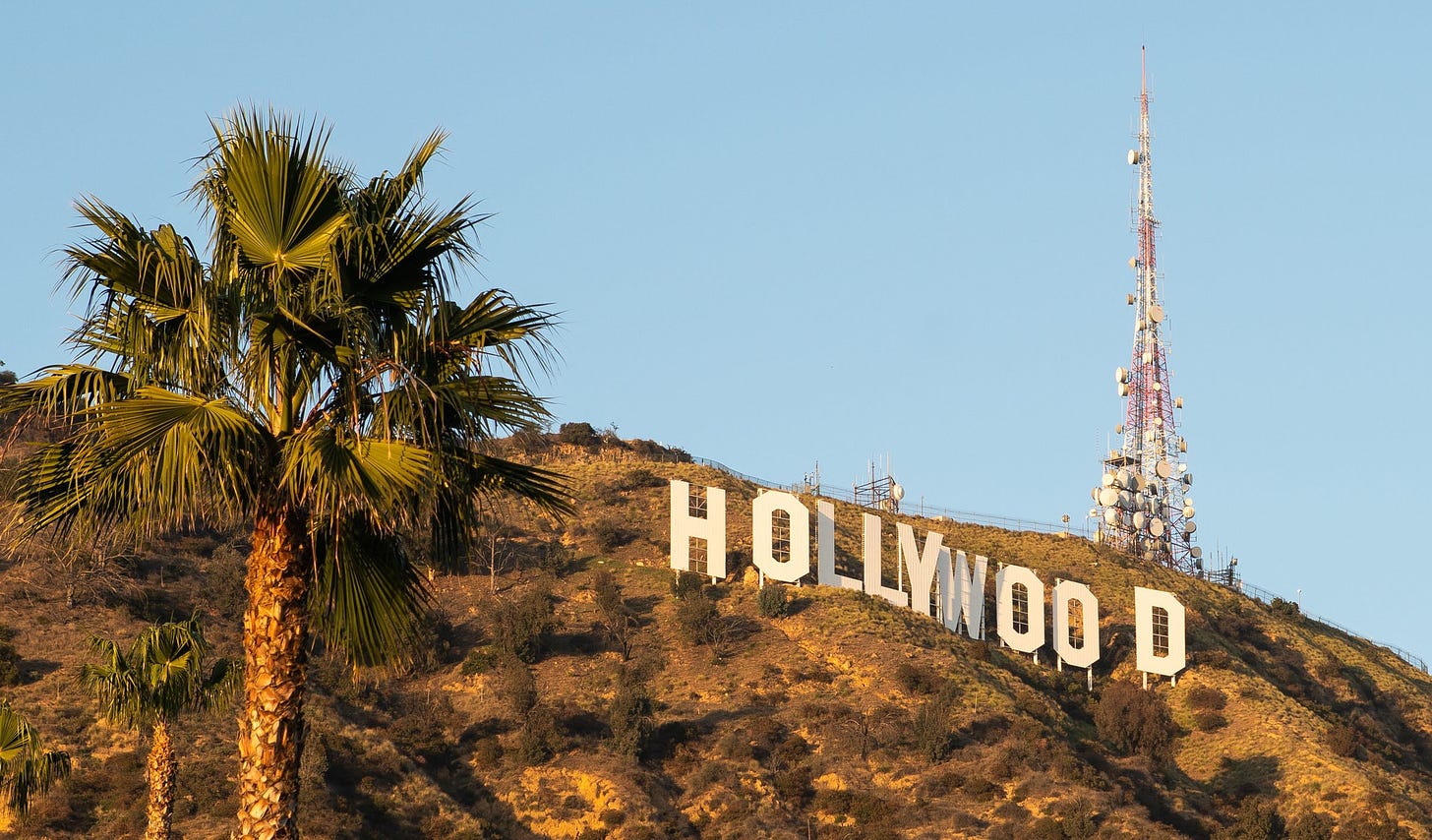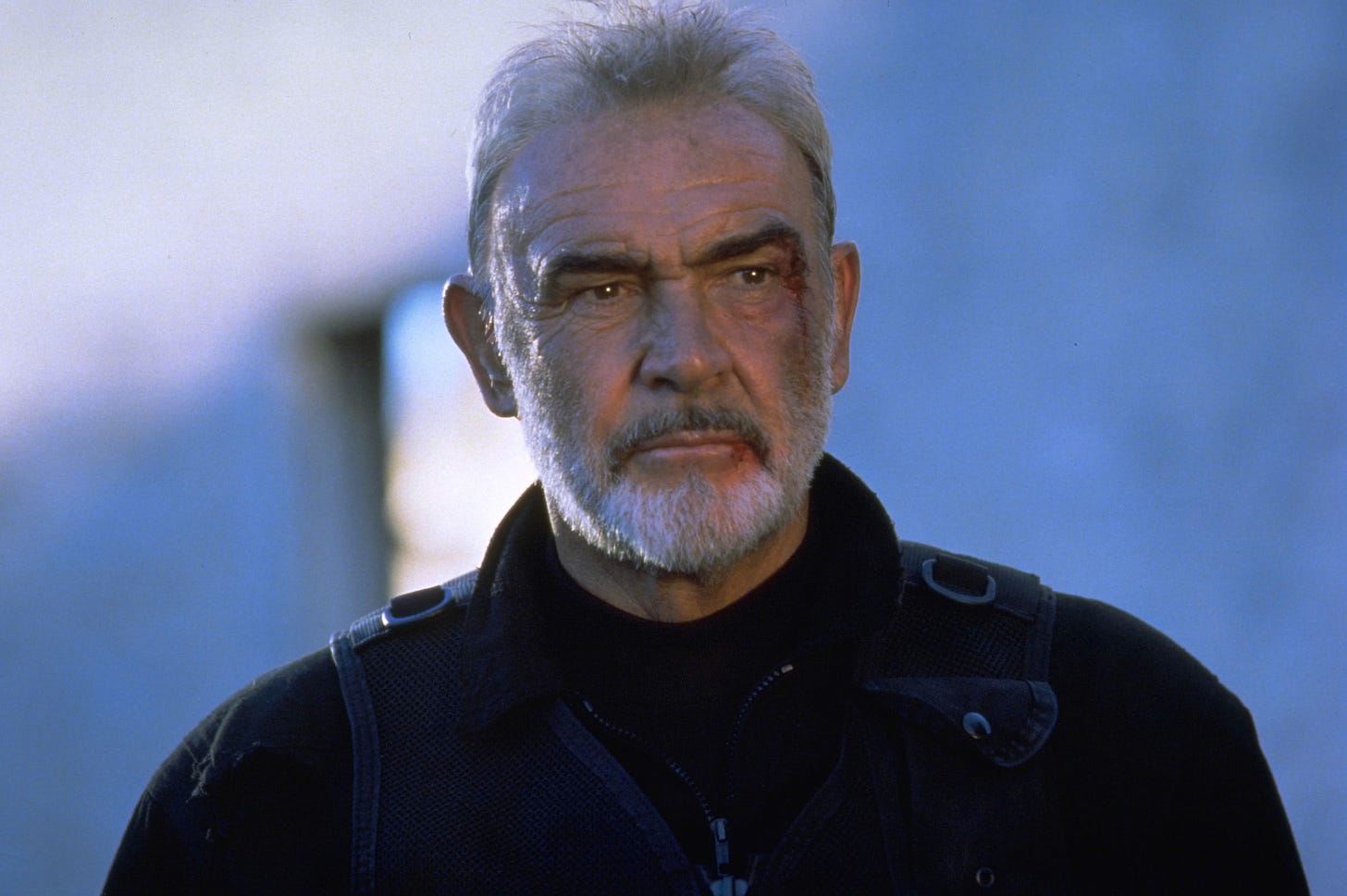What Might a Biden Admin Look Like for Showbiz?
The entertainment industry's is in a rough spot. What could the next four years hold?
So, as things continue to shake out and we get closer to a final result, here’s the question I’m most curious about: What does a Joe Biden presidency (if that comes to pass!) mean for the entertainment industry? Here are three key things to consider.
What can be done to save movie theaters?
At this point, the surest way to save theaters would be to spearhead an effective response to the coronavirus, one that eliminated the disease and explained to people that it is safe to head back to the theaters. Sadly, there’s not a lot that can be done now on the federal level aside from getting a vaccine to people and convincing them to use it. And that’s already well underway.
Since people have talked themselves into the idea that theaters are unsafe—despite there being literally no evidence of any transmissions in theaters; despite the fact that the activity one engages in in a movie theater is not conducive to transmitting the disease; and despite the fact that theaters have never been cleaner or better distanced than they are right now—and a vaccine is at best months away from wide distribution, the real question is what form a bailout might take.
Would a Biden administration make a special effort to aid theaters and their 150,000 employees? Will the Senate, which as of now seems likely to remain in Republican control, go along? Will there be an effort to carve out aid for every theater chain other than AMC, which is owned in part by China? Or will the theaters be left to their fate?
In a post-Paramount Decrees world, will a Biden administration help or hinder consolidation?
One possible route to salvation for theater chains is their purchase by someone looking to move into the theatrical business. There are only a handful of players in this game: Apple and Amazon seem the two most likely, given Apple’s enormous cash reserves and Amazon’s amazing revenue streams; Netflix has never shown much interest in theatrical and can’t afford to redirect money away #content anyway. This route has been opened by the recent court decision holding that the Paramount Decrees—the decades-old settlement that prohibits movie studios from owning their own theaters—will end in 2022.
But it’s unclear how a Biden Department of Justice might look at efforts by tech giants to bring another element of the economy under their control. (Same is true of Trump’s given antipathy to the tech moguls there.) Also unclear is how the DOJ’s antitrust division might respond to, say, Disney requiring block booking of a number of Disney titles if theaters wanted the chance to show MCU or Star Wars or Pixar pictures. Given Disney’s control of the domestic box office, it’s not hard to imagine a world in which they leverage the success of their franchises to require extended runs for more mediocre performers. What happens to riskier indie movies like those made by A24 or Neon if half of a theater’s screens are guaranteed to Disney year round in order to ensure access to the latest Thor flick? Struggling theaters and indie distributors don’t need Mickey Mouse’s boot on their necks in addition to everything else.
Is the future foreign?
Ensuring the health of domestic theaters is about more than protecting jobs. It’s about protecting America’s greatest export, its culture. The most troubling thing I’ve heard in months on that front has come from Christopher Nolan, who suggested in a recent interview that the studios were wrong to focus on Tenet’s lackluster domestic draw and instead should be focusing on where the movie did make money: overseas. Here’s Nolan:
Warner Bros. released “Tenet,” and I’m thrilled that it has made almost $350 million. But I am worried that the studios are drawing the wrong conclusions from our release — that rather than looking at where the film has worked well and how that can provide them with much needed revenue, they’re looking at where it hasn’t lived up to pre-COVID expectations and will start using that as an excuse to make exhibition take all the losses from the pandemic instead of getting in the game and adapting — or rebuilding our business, in other words.
In a way, this is relatively anodyne; if all he’s saying is “hey, release movies now because a modest overseas take is better than nothing and our theaters need something rather than nothing,” then great. But reading between the lines, you can see the concern: “where the film has worked well” includes China, and the Chinese box office has come roaring back in general. At the moment, it is the biggest market in the world by far, easily eclipsing America’s. And if studios decide to focus more on overseas results by, say, pressuring the Biden administration to get China to further open its market to more American movies—something he’s done before!—it could radically change the type and tone of movies Hollywood focuses on.
The best bulwark against creeping foreign influence in our film industry is a healthy domestic exhibition sector. Hopefully we can help save it.
If you like what you’re reading, please share it with a friend! It’s the best recommendation this little newsletter here can get.
Review: Triggered (on VOD now)
Triggered—which, despite what you may have guessed at from the name, isn’t about politics in any way—is one of those pictures that involves a series of curious choices that have nothing to do with the movie, exactly, but greatly hamper the ability to enjoy it. Something about it just seemed a little bit off, right from the get-go. But it was hard to figure out what, exactly, was nagging at the back of my mind.
No, it wasn’t the absurd plot; the absurd plot is kind of fun in the way that most absurd plots are if you really commit to them. A group of high schoolers are having a reunion in the woods; after passing out following an evening of hard drinkin’, hard partyin’, and hard sexin’, they wake up to discover bombs have been strapped to all of their chests by one of their teachers from high school. A timer is on each of the suicide vests, ticking down to zero. If one of them is killed, the person who killed them gets the victim’s time. Last man standing wins their life.
Borrowing bits and pieces from Battle Royale, Scream, Saw, and The Hunger Games, there’s nothing terribly original here, and that’s fine. Less fine is the mediocre acting and the completely cursory nature of the characterization—there’s the brainy one and the slutty one and the jock and the musician and some others; I’m not going to lie, learning their names seemed pretty pointless at the time and I’m not particularly interested in pulling up IMDB to recall them for you here—but that feels like a quibble.
Still. Even for a cheapo teenie horror flick, something felt wrong about what was onscreen. Like it had dipped just onto the wrong side of the uncanny valley. An irritant, picking away at my brain.
I couldn’t figure out exactly what was wrong with Triggered until, in the closing moments, one character runs up to a truck being driven near a campsite. This character approaches the truck and looks in and, wait, oh, yes. I see. That’s what’s wrong.
That’s what’s been wrong with this whole picture.
The movie slowed to a crawl as I realized the truth, images and voices flashing through my head. Imagine my coffee mug falling to the ground in slow motion, à la The Usual Suspects, and you get the gist. It all made sense now: accents that never quite held up, fading in and out of a standard American; high schoolers who seemed utterly unlike any teen from any high school in the United States; dialogue and cardboard cutout characters that felt like they’d been cribbed from a generation of John Hughes movies.
As the final girl ran to her salvation, we realize what’s been wrong with the movie all along: The driver’s sitting on the righthand side of the vehicle.
A little bit of Googling and you learn that this is a film made by South Africans, starring South African actors, none of whom really had a firm grasp on the neutral American accent. It’s a small thing, not really worth getting hung up over. Frequently, it doesn’t matter, as when New Zealand’s Jason Lei Howden directed the British Daniel Radcliffe opposite the Australian Samara Weaving in Guns Akimbo. But it does explain exactly why everything feels just a little off about Triggered.
That’s just the snowflake in me, I guess, demanding little things like “consistency in my accents” from a picture like Triggered. You could even say I was . . . well, you know.
Assigned Viewing: The Rock (Hulu)
Speaking of shaky accents! I went on a bit of a Sean Connery kick this week following his passing last weekend at the age of 90. The Wind and the Lion was a trip, Connery not bothering with anything other than his standard Scottish brogue as he played a Berber warlord rampaging throughout the Arab lands and spouting dialogue crafted by the one and only John Milius.
But The Rock remains my favorite Connery movie, and it happens to be streaming for free on Hulu if you have that service. I know there are folks out there who don’t care for Michael Bay, and I’ll deal with those communist subversives in due course. And I can understand why some are intimidated by a flick like Armageddon: It’s big, it’s loud, and it’s cut like an epileptic fit brought to life.
The Rock, on the other hand, is big-budget, high-concept action at its best: a ridiculous premise with a compelling villain brought to life by a cadre of great actors (Connery, of course; Nic Cage, fresh off his Oscar win; Ed Harris; and a bevy of character actors like Michael Biehn and David Morse and John Spencer and William Forsythe and John C. McGinley and Tony Todd and Bokeem Woodbine) working from a script that’s just punchy enough to be funny without being eye-rollingly absurd. If you need a palate cleanser after this week—and, honestly, who among us doesn’t?—you could do much worse than The Rock.






